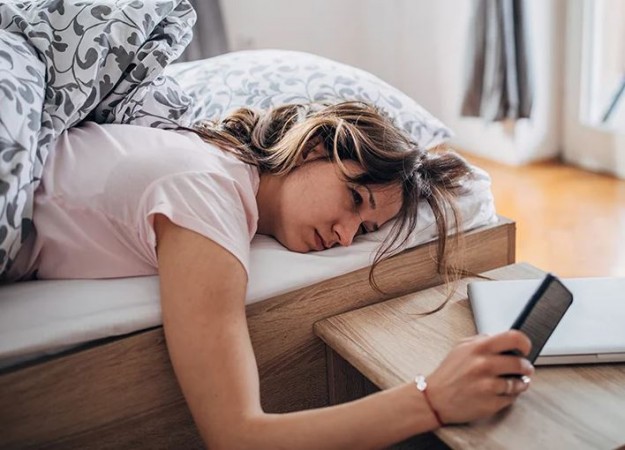
We have all heard the saying that successful people wake up early in the morning. The habit of rising early is not only linked to success but also to health. However, most people still struggle to wake up early in the morning. Although everyone desires to wake up early, they often find it challenging due to laziness. If you also face such difficulties, here we will share some techniques that, if followed, can help you become an early riser.
Set a consistent sleep and wake-up time:
Maintaining a consistent sleep schedule aligns with your body's natural circadian rhythm, which regulates various physiological processes, including sleep-wake cycles, hormone secretion, and body temperature. By going to bed and waking up at the same time each day, you reinforce your body's internal clock, promoting better sleep quality and overall well-being. Creating a regular sleep routine also helps improve sleep efficiency and reduces the likelihood of sleep disturbances, such as insomnia and sleep fragmentation.
Prioritize 7-8 hours of quality sleep:
Sleep duration and quality play a vital role in supporting cognitive function, emotional well-being, and physical health. Getting adequate sleep allows your brain to consolidate memories, process information, and regulate mood, contributing to improved cognitive performance and emotional resilience. Furthermore, sufficient sleep duration facilitates the restoration of bodily functions, such as muscle repair, immune system maintenance, and hormonal balance, promoting overall health and vitality.
Get out of bed as soon as you wake up:
Cultivating the habit of promptly getting out of bed upon waking helps signal to your body that it's time to start the day. Resisting the urge to linger in bed can prevent feelings of lethargy and promote a more energetic and proactive mindset. Engaging in light physical activity or mindfulness practices immediately after waking can further enhance your alertness and mental clarity, setting a positive tone for the rest of your day.
Avoid lingering in bed:
Leaving your bed promptly after waking minimizes the temptation to fall back asleep and promotes a more active and energetic approach to your morning routine. Creating an environment that encourages wakefulness, such as opening the curtains to let natural light in or engaging in light stretching exercises, can help stimulate your senses and reinforce the habit of early rising. Establishing this practice gradually trains your body to associate your waking moments with increased alertness and productivity.
Limit screen time before bedtime:
Reducing screen exposure, particularly to devices emitting blue light, before bedtime can significantly improve your sleep quality. Blue light exposure from electronic devices can suppress the production of melatonin, a hormone that regulates sleep-wake cycles, potentially leading to difficulties falling asleep or experiencing restful sleep. Implementing a screen curfew at least two hours before bedtime can help mitigate the disruptive effects of blue light and promote the production of melatonin, facilitating a smoother transition into a restful and rejuvenating sleep.
Minimize internet usage before sleep:
Reducing internet usage before sleep can prevent mental overstimulation and promote relaxation, making it easier to fall asleep and achieve better sleep quality. Engaging in calming activities, such as reading a book, listening to soothing music, or practicing relaxation techniques, can help unwind your mind and prepare your body for a restful sleep. Creating a technology-free zone in your bedroom and implementing a pre-sleep routine that promotes relaxation and stress reduction can contribute to a more restorative and uninterrupted sleep experience.
While adopting these strategies can contribute to establishing a habit of early rising and improving your overall well-being, it's essential to customize these recommendations to align with your individual preferences and lifestyle. Prioritize creating a comfortable and conducive sleep environment that promotes relaxation and supports your commitment to achieving your desired wake-up time.
It's advisable to consult a healthcare professional or sleep specialist if you experience persistent sleep difficulties or suspect the presence of an underlying sleep disorder. They can provide personalized guidance and recommend specific interventions to address your unique sleep concerns and optimize your sleep quality and duration.
How Fitness Trackers Have Evolved and Their Impact on Health
This smart glass came in the market before Jio Glass, price less than 2 thousand
Celebrities have also become victims of psychotic breakdown, know its symptoms and causes